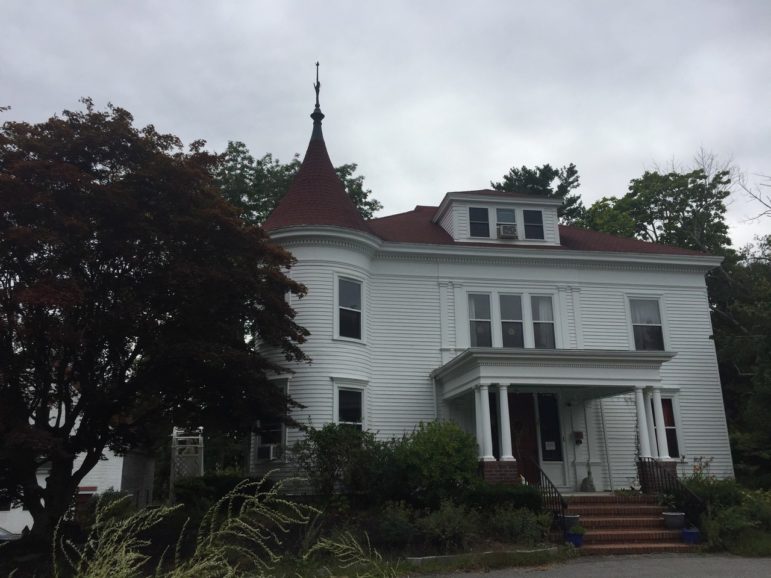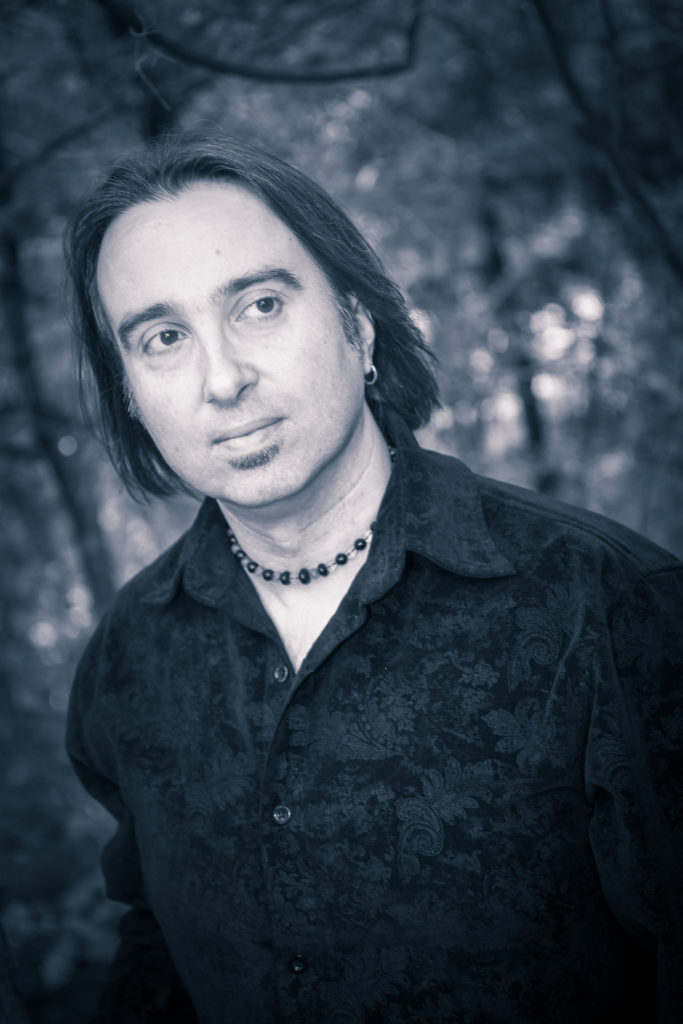 TWH’s Jake C. Liebowitz talked with Christopher Penczak about his early years, the Salem, New Hampshire Witch community, and his path into Witchcraft that would eventually lead him to found his own tradition.
TWH’s Jake C. Liebowitz talked with Christopher Penczak about his early years, the Salem, New Hampshire Witch community, and his path into Witchcraft that would eventually lead him to found his own tradition.
This is the first of a two-part interview that explores the creation and evolution of The Temple of Witchcraft which Penczak started in 1998, and was eventually co-founded with Steve Kenson, and Adam Sartwell in 2009.

Temple of Witchcraft logo [courtesy]
TWH: How would you introduce us to the Witch community of Salem, New Hampshire?
Penczak: There are circles and covens established in the surrounding areas, not just Salem, New Hampshire, which isn’t that large of a town. Our local community stretches as far north as Manchester, about a half hour away, and down into northern Massachusetts, particularly the Merrimack Valley.
When you say you are a Witch in Salem, people assume that it is the more famous Salem, Massachusetts, but we have an ancient stone circle site here, America’s Stonehenge, that many Witches and mystics seek out to visit. It’s an unusual place with solar and lunar alignments. I like to take our out-of-town guests there, but have to warn them despite the name, it’s much smaller in stature than the British counterpart. Sadly it was recently vandalized, but I haven’t had a chance to see the damage myself yet.
TWH: Who are the Witches of Salem?
Penczak: Well, I know there are quite a number of solitaries and we have had stores pop up here and there for a time, including today’s local shop, The Dragon’s Keep, located in Salem, my main experience has been with the community that evolved into the Temple of Witchcraft. I am always surprised, pleasantly, when I, or another member of our Temple community still run into the lone solitary at the grocery store or out elsewhere. Our High Priestess, Alix Wright. works with the public in the medical field and runs into both practitioners and those curious, during the course of her day job.
TWH: How did you come to be a part of the Salem Witch community?
Penczak: Believe it or not, I grew up here. I lived in Salem until I was 26 in 1999 and lived not far away until 2012 when we obtained the Temple property here. I went to Catholic grammar school in town, and while many of my friends went off to the local public High School, I went to HS two towns over, but still lived in Salem. I was a commuter through college to the University of Massachusetts, so my roots have always been here.
My first teachers in the Craft actually lived in Salem, NH, though they were deeply connected to the community in Salem, Massachusetts. These were the days in New Hampshire when people were not that open about who they were and what they practiced. You had to know the right people to be introduced. Witchvox.com wasn’t even up then. One had a local business and was very quiet about her Witchcraft activities, though she relaxed as the years went by. I knew her since I was seven, and she didn’t reveal she was a Witch to me until I was eighteen, and out of High School. She got me started and invited me to her coven’s esbat one August night.

Temple of Witchcraft’s main house [Image courtesy of Temple of Witchcraft]
TWH: From that point, how did things move toward your involvement with The Temple of Witchcraft?
Penczak: From being invited to gatherings, I soon found myself helping host events with those teachers,and within a few years, my mother and I were hosting events at our home. We weren’t the only ones either. Sometimes we’d be invited to gatherings a town or two away. We began with semi-open “Halloween” parties that started with a magick circle ritual for Samhain, for Witches but also an opportunity for people in our lives to experience what we did. You had to be invited by someone who was invited by us, someone we trusted. They moved from smaller gatherings of twenty to ending on the thirteenth year of this tradition with around eighty.
As I began to teach, many of the attendees were students though friends from other circles and covens often attended. We hosted a few Beltanes as well, which were smaller, and the other six sabbats were usually reserved for our coven and special guests, with no more than fifteen people at those. Recently I reconnected with a neighbor from that time, who was a little boy when we were near the end of those gatherings, and he asked if my father was still the “head Satanist” of Salem. I explained that we are Witches and Satanism is something different, and while very supportive, my father was never a practitioner. It was a fun reconnection and that neighbor recently applied
to our school.
Since then, I continued to teach students in the Salem, New Hampshire area from my parent’s home even after I moved away. I kept a small informal office there to see tarot clients and teach. I began leading sabbats in other places as well, and community evolved, but the core of it was deeply connected to Salem, New Hampshire.
TWH: In terms of religious representation, how diverse is the Salem community as a whole?
Penczak: There are all the typical religious groups, mostly Christian, in the town. If there is more diversity, I am unaware. A Hindu temple has been approved, but not built yet to my knowledge. And I’m unaware of a mosque in town, but there is one in the town next door. Likewise, no synagogues directly in town, but not too far away. There are Catholic, Episcopal, Methodists, and Baptists churches and centers in town.

Christopher Penczak [courtesy]
TWH: How have Salem’s Witches–and other folks who are not adherents to the dominant religion–been received by the community over the years?
Penczak: As readers might imagine, there are not too many Christian institutions publicly endorsing a Witchcraft community center and temple, but we have appreciated a lot of the quiet support by neighbors and people in town. When we first arrived, we got a lot of support from one religious group in particular. I got a very supportive visit from a minister for tea and some helpful advice on navigating the town.
Once, we lost our rented space for Ostara due to a scheduling conflict with the hall, and this church offered their space for us to gather free of charge. I was blown away by their generosity. Some of our community members participated in a homeless program with another local church but was specifically asked to not advertise our presence as the Temple of Witchcraft, but just as individuals, fearing the controversy would adversely affect the program, but delighted to have some support. We honored the request because it was not about the public statement, but the help.
We continue to find ways to interface with near and far community for support.
Join us for part two of this interview next week.
The Wild Hunt is not responsible for links to external content.
To join a conversation on this post:
Visit our The Wild Hunt subreddit! Point your favorite browser to https://www.reddit.com/r/The_Wild_Hunt_News/, then click “JOIN”. Make sure to click the bell, too, to be notified of new articles posted to our subreddit.